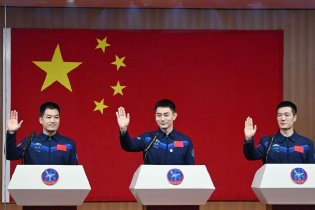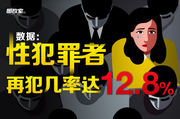Source: Yuyuan Pond Sky
On the afternoon of April 24, US Secretary of State Anthony Blinken arrived in Shanghai, starting his second visit to China.
Tan learned that at the beginning of this year, the United States proposed to visit China. The United States wanted to come, but communication more focused on action.
It can be seen that before this visit to China, the US side was still creating "chips" for itself in negotiations by means of insiders' publicity and media speculation on a certain issue.
But if we want to rely on such "chips" to exert pressure, will it work?
According to foreign media reports, Blinken will take over Yellen's microphone this time and talk about the so-called "overcapacity theory" of China.
Even some American economic analysts said it was difficult to understand Yellen's statement, which they believed violated the most basic principles of economics advocated by the West for more than 200 years.
What are the US media saying about the "overcapacity theory"?
In 2022, American media reports on the so-called "overcapacity theory" in China will focus on the semiconductor industry.
Since 2023, American media reports on the so-called "overcapacity theory" in China have shifted to China's "new energy products", especially new energy vehicles.
In order to unravel the narrative routine of the US side, we also made a targeted analysis of the trend of the report on "new energy vehicles" in the report on the so-called "overcapacity theory" in China.
The period with the most reports was the time when Yellen visited China.
The other small peak is August 23, 2023. The corresponding node of this peak is a global industry analysis organization that released estimates. The EU expects to import more than 1.2 million electric vehicles from China in 2030.
It can be seen that the industries that China has advantages over the United States have become "surplus industries" under the American narrative, and whenever China's new energy industry shows competitiveness, the American media hype the so-called "overcapacity" in China. That is to say, the American media's attention to the so-called "overcapacity" in China is the tracking and attention to China's economic highlights and breakthroughs. Behind this is the anxiety of the United States about the development of China's new quality productivity.
This is just one side of the American narrative. After analyzing the entities appearing in the reports of the American media on the so-called "overcapacity theory" from 2022 to 2023, we found that Europe has become the main target of the United States to play up the "threat" of China's new energy industry.
This corresponds to a very important goal of the United States in hyping the "overcapacity theory", which is to attempt to trap "kidnap" allies with words and turn the so-called "overcapacity theory" into a trade weapon against China.
For new energy vehicles, the new energy vehicle industry is not overcapacity, but far from it.
China is the world's largest producer and marketer of new energy vehicles. In 2023, China's production of new energy vehicles will be 9.587 million. This year, China exported 1.203 million new energy vehicles - nearly 90% of China's production capacity, all meeting domestic demand. This also means that for the world, China's exports in the new energy vehicle industry are high-quality and scarce capacity.
Research shows that only when the cost of clean energy is lower than that of fossil energy can the market be motivated to use clean energy to achieve green transformation. The way is to bring scale economy into play.
The reason why the new energy industry has economies of scale is inseparable from its industry characteristics.
First, equipment investment accounts for a high proportion of the total investment in the new energy industry. Secondly, the new energy industry has a large investment in technology research and development. Finally, the development of the new energy industry depends on the construction of public infrastructure.
At present, China is the only country that has done a good job in these three areas and brought the economies of scale into play in the new energy industry.
Perhaps it is precisely because of the clear understanding of the real competitiveness of China's new energy industry and the objective gap between China and China in industrial production capacity that the United States feels anxious from the bottom of its heart.
It is not difficult to understand why the Biden government chose to carry out the so-called "investigation" on China's ICV this year. Its essence is to try to curb and suppress the development of China's advanced industries through these "outside tactics" when the competitiveness of its own industry is far from keeping up with the market demand.
Its purpose is to seize some of China's most advantageous aspects, focus on the decline, interpret China's advantages as "disadvantages", shape them as "threats", and try to undermine the focus of our development. This "heart attack" routine is not insidious.
The United States believes that making such "chips" will undermine China's confidence, but their behavior is not proof that we are doing the right thing?
Editor in charge: Liu Debin















